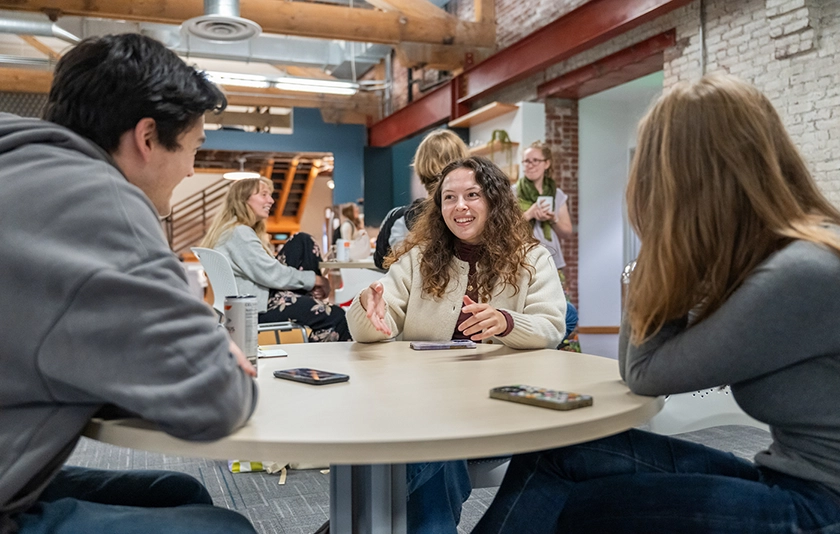Launching a successful career takes more than being a strong candidate on paper. Communication. Collaboration. Creative problem-solving. These are the skills that hiring managers say are the hallmark of exceptional employees.
At Willamette, students gain those advantages not by accident, but by design. Through interdisciplinary coursework, hands-on learning, and a focus on connecting theory to practice, a liberal arts education provides students with the soft skills that give them a leg up in their chosen field. Cultivating these strengths is woven into every part of the Willamette experience, forming the foundation for students’ futures. The result? Willamette graduates enter the workforce equipped with both the knowledge and the soft skills that make them valuable from day one.
“Willamette students have strong interpersonal skills and a deep level of empathy for each other,” says Anne Lapour, executive director of career initiatives. “They are skilled at working together and they’re accustomed to being in small classrooms where they have to respect other people’s points of view, learn from each other and articulate their opinions succinctly.”
Guiding students to leverage these abilities is central to Willamette’s career readiness philosophy. With resources ranging from personalized advising to mock interview workshops, the newly renovated Career Center in the heart of Willamette’s Salem campus ensures that every step students take is tailored to help them achieve their aspirations. Staff work closely with students to showcase their potential and make their résumés stand out, illuminating their talents and achievements as well as their core values.
“Our motto at Willamette, ‘Not unto ourselves alone are we born,’ is a big deal here, and students take it very seriously,” Lapour says. “So no matter what they are studying, they can speak to why and how their area of study equips them to be good citizens of their communities.”
Marie Tarrab BA’26 is one of those students translating classroom learning into career confidence. Last summer, the biology major, member of Willamette’s NSF-funded STEM Fellows program, and varsity tennis player interned with Salem Free Clinics.
“Being a part of the STEM fellows program has allowed me to develop a concrete resume, CV, personal statement, and even grow my connection with the career development team,” she says. “These things have let me refine my applications for internships and graduate programs so that I am a competitive candidate. Through my leadership experiences on campus, I am able to use transferable skills such as effective communication, empathy, and time management.”
The continued success of Bearcats in the workplace proves that soft skills aren’t secondary – they’re essential. As industries evolve, soft skills can’t be automated or replaced, and job seekers who think critically and lead with compassion and creativity will always have the edge.

